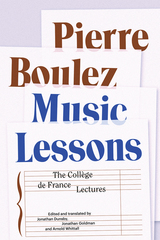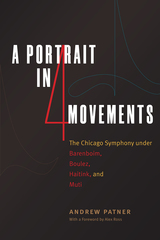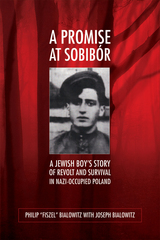
Including a foreword by famed semiologist Jean-Jacques Nattiez, who was for years a close collaborator and friend of the composer, this edition is also enriched by an illuminating preface by Jonathan Goldman. With a masterful translation retaining Boulez’s fierce convictions, cutting opinions, and signature wit, Music Lessons will be an essential and entertaining volume.

This first thorough biography of the gifted Pierre Boulez interrelates four major aspects of his professional life: as composer, as conductor, as polemicist for new music, and as musico-political entrepreneur. Lively, intimate, and knowledgeable, it will fascinate concertgoers and students of contemporary music, and will be an especially valuable handbook for those who own recordings of the music. Dominique Jameux develops a comprehensive life history of Boulez, marking all the milestones. We observe the composer at study and at work: the relationship—personal and intellectual—between Boulez and Messiaen; the organization of the Domaine Musical concerts for performance of avant-garde music as well as the launching of IRCAM, an institute for experiments with new musical techniques; Boulez’s teaching experiences, particularly at Darmstadt and Harvard; his discussions with other composers; and his seasons as conductor of the New York Philharmonic, of the BBC Symphony, and of Wagner at Bayreuth.
Many major artistic names figure in this story—Messiaen, Cage, Stockhausen, Maderna, the conductor Rene Leibowitz, the actor Jean-Louis Barrault, as well as several great performers. In Part II, Jameux discusses in detail twelve representative compositions, ranging from the flute sonatina of 1946 to Répons. Throughout the preparation of this book, Jameux had the advantage of interviews with Boulez, along with many informal meetings; the result of the author’s direct contact with his subject is a lucid and reliable introduction to the music, ideas, and activities of one of the leading musical thinkers and doers of our day.

The Chicago Symphony Orchestra has been led by a storied group of conductors. And from 1994 to 2015, through the best work of Daniel Barenboim, Pierre Boulez, Bernard Haitink, and Riccardo Muti, Andrew Patner was right there. As a classical music critic for the Chicago Sun-Times and WFMT radio, Patner was able to trace the arc of the CSO’s changing repertories, all while cultivating a deep rapport with its four principal conductors.
This book assembles Patner’s reviews of the concerts given by the CSO during this time, as well as transcripts of his remarkable radio interviews with these colossal figures. These pages hold tidbits for the curious, such as Patner’s “driving survey” that playfully ranks the Maestri he knew on a scale of “total comfort” to “fright level five,” and the observation that Muti appears to be a southpaw on the baseball field. Moving easily between registers, they also open revealing windows onto the sometimes difficult pasts that brought these conductors to music in the first place, including Boulez’s and Haitink’s heartbreaking experiences of Nazi occupation in their native countries as children. Throughout, these reviews and interviews are threaded together with insights about the power of music and the techniques behind it—from the conductors’ varied approaches to research, preparing scores, and interacting with other musicians, to how the sound and personality of the orchestra evolved over time, to the ways that we can all learn to listen better and hear more in the music we love. Featuring a foreword by fellow critic Alex Ross on the ethos and humor that informed Patner’s writing, as well as an introduction and extensive historical commentary by musicologist Douglas W. Shadle, this book offers a rich portrait of the musical life of Chicago through the eyes and ears of one of its most beloved critics.

A Promise at Sobibór is the story of Fiszel Bialowitz, a teenaged Polish Jew who escaped the Nazi gas chambers. Between April 1942 and October 1943, about 250,000 Jews from European countries and the Soviet Union were sent to the Nazi death camp at Sobibór in occupied Poland. Sobibór was not a transit camp or work camp: its sole purpose was efficient mass murder. On October 14, 1943, approximately half of the 650 or so prisoners still alive at Sobibór undertook a daring and precisely planned revolt, killing SS officers and fleeing through minefields and machine-gun fire into the surrounding forests, farms, and towns. Only about forty-two of them, including Fiszel, are known to have survived to the end of the war.
Philip (Fiszel) Bialowitz, now an American citizen, tells his eyewitness story here in the real-time perspective of his own boyhood, from his childhood before the war and his internment in the brutal Izbica ghetto to his harrowing six months at Sobibór—including his involvement in the revolt and desperate mass escape—and his rescue by courageous Polish farmers. He also recounts the challenges of life following the war as a teenaged displaced person, and his eventual efforts as a witness to the truth of the Holocaust.
In 1943 the heroic leaders of the revolt at Sobibór, Sasha Perchersky and Leon Feldhendler, implored fellow prisoners to promise that anyone who survived would tell the story of Sobibór: not just of the horrific atrocities committed there, but of the courage and humanity of those who fought back. Bialowitz has kept that promise.
Best Books for General Audiences, selected by the American Association for School Libraries
Best Books for High Schools, selected by the American Association for School Libraries
Best Books for Special Interests, selected by the Public Library Association
READERS
Browse our collection.
PUBLISHERS
See BiblioVault's publisher services.
STUDENT SERVICES
Files for college accessibility offices.
UChicago Accessibility Resources
home | accessibility | search | about | contact us
BiblioVault ® 2001 - 2024
The University of Chicago Press









